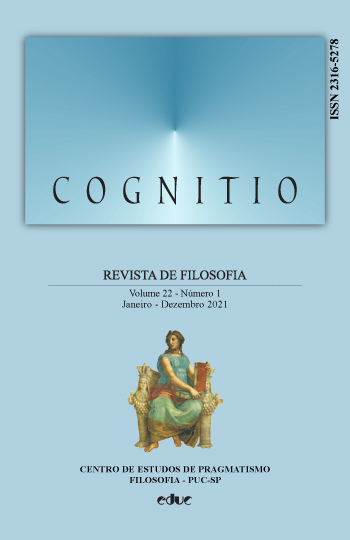Peirce’s inheritance of Schelling’s progressive metaphysical empiricism
DOI:
https://doi.org/10.23925/2316-5278.2021v22:e55221Abstract
The career-texts of Kant, Schelling, and Peirce unfolded in historical sequence to form a paradigm progression in philosophical modernity. To wit, Kant’s third Critique’s reflective synthesis of foundational concepts of nature and freedom opened a speculative path for a landmark line of development in Schelling’s later-phase metaphysical empiricism which, in turn, conveyed a decisive provenance for Peirce’s articulation of indecomposable categories of epistemology, cosmology, and ontological semeiosis. Peirce’s categoriology reconfigured certain theoretical implications of Schelling’s Investigation into the Essence of Human Freedom (1809) and The Grounding of the Positive Philosophy(1841) in his later-phase trajectory of postulating an energetic reasonableness in the nature of things.
Downloads
Published
How to Cite
Issue
Section
License
Copyright (c) 2021 http://creativecommons.org/licenses/by/4.0/

This work is licensed under a Creative Commons Attribution 4.0 International License.









